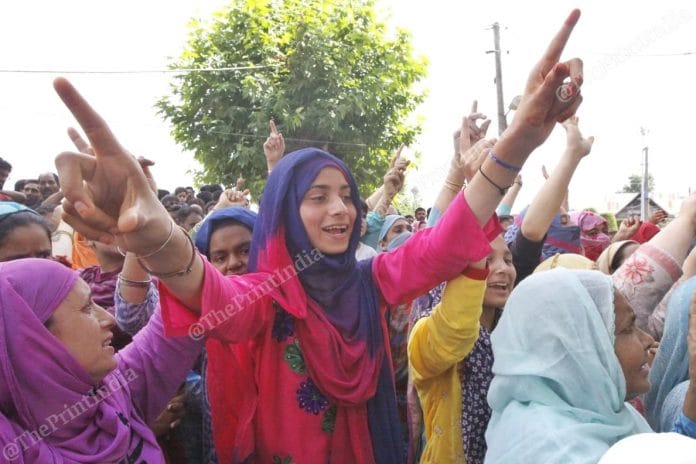New Delhi: The abrogation of Article 370 has paved the way for the National Commission for Women (NCW) to act on complaints filed before them by women from Jammu and Kashmir.
The commission said Article 370, which granted special status to Jammu and Kashmir, barred them from acting on such complaints.
“We have always received complaints by women of Jammu and Kashmir, but we would always forward them to the state commission of women and child rights since we couldn’t act on them,” Rekha Sharma, chairperson of the NCW, told ThePrint.
The Narendra Modi government on 5 August revoked the special status accorded to Jammu and Kashmir, and dismembered the region into two union territories — J&K and Ladakh — with and without a legislature, respectively.
Sharma said, “The Women and Child Development Ministry has said we will now also be able to act on all the complaints we receive from there.”
Depending on the nature of the complaint, the commission will take further action.
“Every complaint is different and, based on the nature of the complaint, we will take up the matter either with the (J&K) DGP or the Principal secretary,” an NCW official, who did not wish to be named, told ThePrint.
No complaints received since Article 370 was revoked
The NCW said they haven’t received any complaints from women so far since the revocation of J&K’s special status.
“The minute we start getting complaints from the women of Jammu and Kashmir, we will start acting on them,” Sharma said.
Reacting to the government’s move on Article 370, Janaki Abraham, a feminist activist and professor of sociology at Delhi University, said this is like trying to find a silver lining in retrospect.
“Any body which works in a fair and just manner, and looks into the violence against women is certainly a good thing. However, I am not sure if commitment to the women of Kashmir was the motivation behind abrogating Article 370. It’s like trying to find a silver lining after (committing) the act,” Abraham said.
Also read: How this General saw Kashmir 50 yrs ago – No signs of fundamentalism, Army had people’s trust
What happens to existing J&K commission for women?
The NCW is unsure whether or not the existing state commission for women and child rights will cease to exist or play some facilitative role.
“I don’t think the state commission for women will cease to exist. However, given how Jammu and Kashmir is now a union territory, there might be some different legalities that the state commission will need to adhere to,” Nayeema Ahmad Mehjoor, former chairperson of the Jammu and Kashmir State Commission for Protection of Women and Child Rights, told ThePrint.
Sharma, meanwhile, said they have been carrying out sensitisation programmes for Jammu and Kashmir police officers as well as spending money on legal awareness campaigns for a very long time now.
“We have held seminars for greater sensitisation and training programmes across universities in Srinagar as well as some in Jammu,” she added.
Also read: How Kashmir’s getting by — dark humour, scars of a missed Eid & apples sold for a pittance






